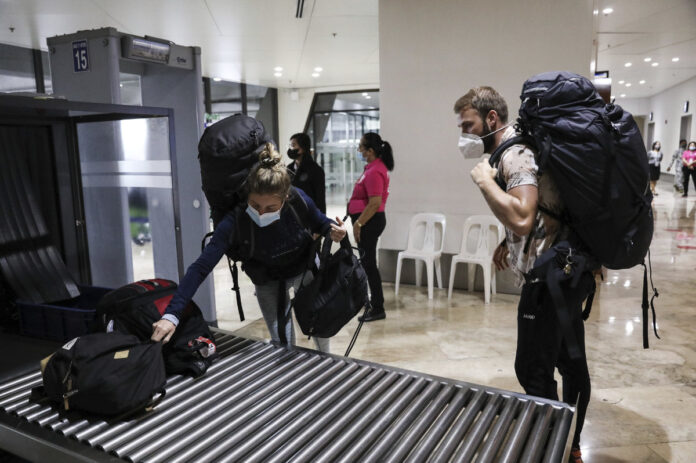MANILA: The Philippines reopened to fully vaccinated, COVID-negative foreign tourists on Thursday, after nearly two years of pandemic border closures.
Home to white sand beaches, famous diving spots, lively entertainment, cultural heritage and wildlife, the Philippines is dependent on tourism. When COVID-19 hit in 2020, most of the country’s tourism destinations were forced to shut.
But two years into the pandemic, the Southeast Asian nation has been largely successful in containing the local spread of the virus with lockdowns and vaccinations. It had planned to reopen in December, but the decision was postponed as the authorities decided to wait and see how the situation developed worldwide after the emergence of the omicron variant.
“We are happy, all stakeholders, that we are opening today,” Tourism Secretary Bernadette Romula-Puyat told reporters.
“We hope that this continues so that we get more jobs for our countrymen,” she said, adding that 1.1 million tourism workers in the country had lost their jobs during the pandemic and the reopening will have a huge impact on the country’s economic recovery.
Before the pandemic, in 2019, tourism contributed nearly 13 percent of the country’s gross domestic product, generating 2.51 trillion pesos ($50 billion), according to Philippine Statistics Authority data. In 2020, revenues from tourism plummeted to 973 billion pesos, with foreign arrivals slumping 82 percent.
The first flight with foreign tourists to reach Manila International Airport on Thursday arrived from Vancouver, Canada. Other flights came from the US, Singapore, Thailand, Indonesia, Malaysia, Bahrain and China.
A third of the nearly 11,500 passengers scheduled to arrive in the Philippines that day were foreigners, while the majority were returning Filipinos, according to Bureau of Immigration estimates.
It said it expects the number of foreign arrivals to be about 12,000 a day in the coming months.
Immigration Commissioner Jaime Morente said in a statement: “We see this as the start of the recovery of the tourism industry which we hope will renew its vigor as in the previous years.”
Visitors arriving in the Philippines must present proof of being fully vaccinated against COVID-19, a negative result of a PCR test taken within 48 hours before departure, and travel insurance for COVID-19 treatment costs, with a minimum coverage of $35,000 for the duration of their stay in the Philippines.

